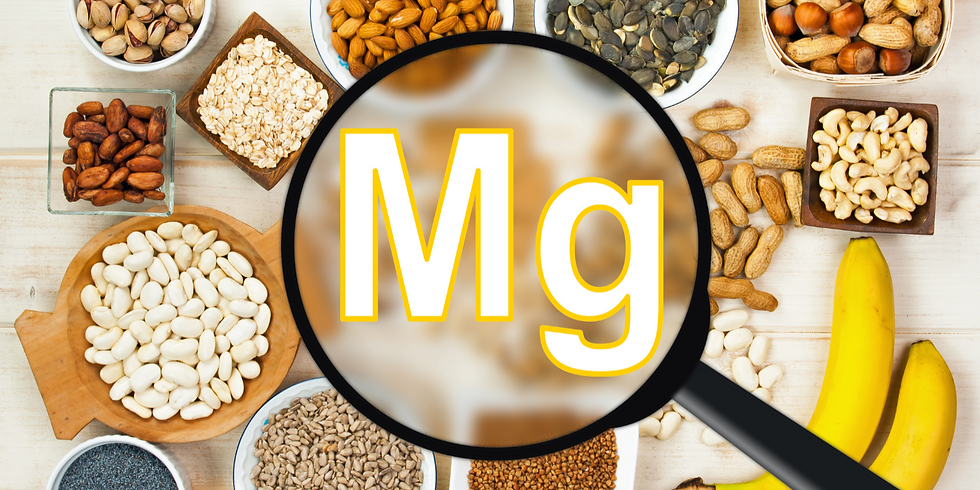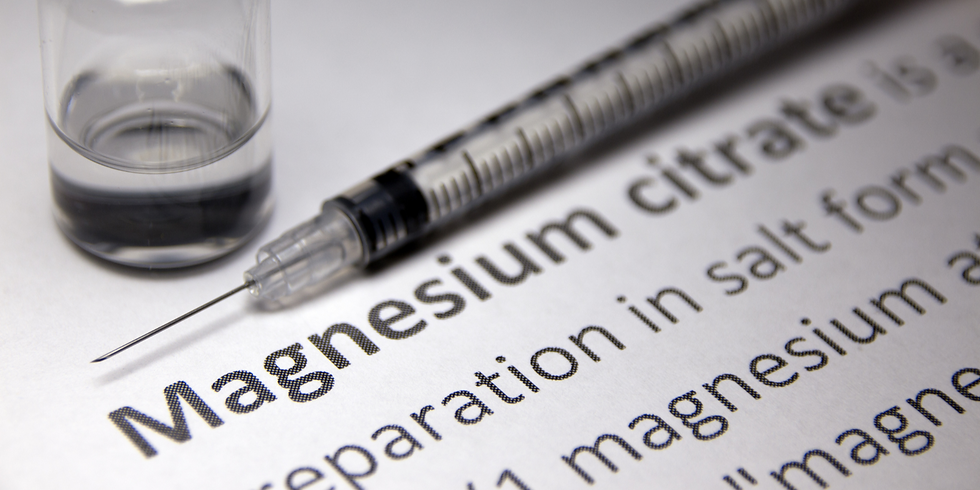5 Best Supplements for Perimenopause Support
- Marcie Vaske, MS, LN, CNS

- Nov 3, 2025
- 5 min read
What are some good supplements or the best supplements during perimenopause?
Magnesium: The Calming Mineral
And number one on the list is going to be magnesium. Magnesium is our calming mineral, and this one little mineral just does so many things, and especially during perimenopause, when we feel a little upheaval in our life, we need that calming mineral. Magnesium helps to support our sleep, it helps our brain function, it can help our mood, and it can help our muscles relax.
Low levels of magnesium are actually pretty common, and you can have symptoms such as muscle cramping, more irritability, anxiety, and even having more sleep. Now, when I suggest magnesium for my clients, I usually talk about magnesium glycinate or magnesium citrate. Magnesium glycinate is the most absorbable form of magnesium and covers all the bases. So if you're having any of those symptoms, feeling a little irritable, feeling like you're having a lot of muscle cramping or just not sleeping, magnesium is a go-to, and you can easily start with 200 to 400 milligrams at bedtime.
[Video Transcript Below + Supplement Links Discussed In Video]
Welcome back to our channel where we talk all about supplements. Now, before I dig into our topic today, don't forget to click on the subscribe button down below so you'll be notified of all of our upcoming videos. Today I'm going to dive into a topic that affects so many women but isn't talked about enough perimenopause. And I'm going to give you information on what are some of the best supplements to take while you're going through this transition.
Understanding Perimenopause

Now, perimenopause is the phase before we enter menopause. This is where you might start feeling your hormone levels change and fluctuate, especially our estrogen and our progesterone. So you might randomly get some hot flashes or you'll start experiencing night sweats, or maybe you are seeing weight fluctuations or maybe you're just not sleeping anymore, and you may start to see some irregularity with your cycles.
Now, of course, every woman's journey through perimenopause is different and unique, but there are some key supplements that can help you feel better during this time.
But before we dig into all of these great supplements, my name is Marcie Vaske and I'm a licensed nutritionist with Flusso Nutrients. And at Flusso Nutrients, we work really hard to educate you on different types of supplements so that you can make a good choice for yourself. Now, of course, if you have questions, you can always put them in the comments down below. And if you are taking other supplements or even medications, make sure you talk to a literate supplement practitioner just to get the best advice.
B Vitamins: Energy and Hormone Support
Now, number two on our list is going to be B vitamins. Now, our B vitamins do many things in our body, but specifically B12, B six and folate help your body efficiently detox estrogen, and it also helps to support our adrenal function. So essentially they're great for energy production and mood balance.
So when that fatigue hits you or even brain fog comes in, you can reach out to a B complex vitamin. Now, when I'm talking about B vitamins to my clients, I often recommend methylated B vitamins. This way we're getting a complex of many of the different types of B vitamins and not just pointing them apart such as just taking B six or just taking B12. If you choose a complex B vitamin, I'm going to link some of these supplements down below. So the one that I link is going to be a really great one to begin with.
And you can start with one capsule in the morning, and if it feels good or you think it's not really doing what you want it to do in terms of energy or maybe clearing some brain fog, you can always go up to two capsules in the morning.
Omega Fatty Acids: Reducing Inflammation and Hot Flashes
Now, number three on the list is omega fatty acids. This is going to help support inflammation and again, our mood balance. Now, omega fatty acids can really support our inflammation, and I've talked about omega threes in other videos when talking about reducing inflammation in the body. It's a great one to just really hone in on systemic inflammation. It also helps to support our mood. And one of the terrible symptoms I think of perimenopause and menopause are those darn hot flashes. And omega fish oils can also support those hot flashes.
So when choosing an omega fatty acid supplement, you want to make sure that you're looking for something with high quality fish oil and you can begin by taking two to 3000 milligrams a day.
That's a nice maintenance, and mostly I would recommend for my clients to take around 3000 milligrams, and this will help to bring down inflammation, support your mood, and support those hot flashes.
Adaptogenic Herbs: Balancing Stress and Hormones
Number four on the list is going to be adaptogenic herbs. This helps to bring harmony to our hormones. So adaptogens like ashwagandha, rhodiola, or even Maca can help your body manage stress and also help those fluctuating hormones. And to break those three down, ashwagandha specifically helps to bring calmness to your body and your mind. So it reduces stress, it makes you feel more peaceful. Maca root helps to improve our libido and kind of rev us up and give us some energy, whereas Rhodiola can help to clear brain fog and reduce fatigue. So all of those are great options if you're struggling with a lot of mood stuff, brain fog or brain clarity, and also if you have a lot of stress. So it helps to reduce the cortisol.
Now, I'm going to link actual supplement down below that has those items in there, and sometimes you can take all three of 'em separately, but I see it work best for my clients when I give them something that has a little bit of all of it in there. And with that particular product, cortisol Pro that I've linked below, you can take one to two caps per day, typically in the morning or around lunchtime.
Probiotics: Supporting Gut and Hormone Health
And the last supplement on the list is going to be a simple probiotic. And this isn't absolutely necessary. If you have good gut health, maybe you don't need it, or if you're eating fermented foods, maybe a probiotic isn't necessary.
But we need to have a healthy gut because our gut helps to rid our estrogens and our hormones. So by having a healthy gut, we get rid of excess estrogens that would reduce bloating or excess discomfort in our abdominal area. So if you choose to do a probiotic, I will again link one down below.
But also keep in mind that eating fermented foods are also a great way in strategy to help support your gut microbiome.
Final Thoughts: Best Supplements for Perimenopause
So now you have some tools in your toolbox. If you're struggling during perimenopause and maybe you start one at a time, maybe just one thing is bothering you. So this list of supplements I gave you, pick one that resonates best with you. Until next time, I hope you enjoyed this video and gave you a little bit more insight into how you can support your perimenopausal symptoms.
I'll see you next week. Bye-bye.
Check out the high-quality supplements we discussed in this video - links below for your convenience!
1) Magnesium Glycinate: https://flussonutrients.nutridyn.com/magnesium-glycinate
2) B-Complex: https://flussonutrients.nutridyn.com/b-complex
3) Omega Pure Complete: https://flussonutrients.nutridyn.com/omega-pure-complete
4) Stress Essentials Cortisol Pro: https://flussonutrients.nutridyn.com/cortisol-pro
5) UltraBiotic Daily Multi-Strain: https://flussonutrients.nutridyn.com/ultrabiotic-daily-multi-strain
3) ALL PROFESSIONAL QUALITY SUPPLEMENTS: https://flussonutrients.nutridyn.com & https://us.fullscript.com/welcome/flussonutrients




Comments